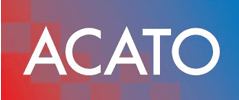What role does ISO 27001 play in schools?

Schools need a future-proof, high-performance and GDPR-compliant network infrastructure. First of all, students, teachers and administration need user-friendly platforms. Getting started with e-learning is associated with many hurdles and risks. ISO 27001 plays an important role in the digitalization of schools in the UK & Euro zone. In this article, we explain how ISO 27001 ensures greater security in schools.
Holistic network infrastructure
Anyone planning a new network or wanting to modernize an existing school system must face these challenges. Compliance with the various data protection laws and security specifications as well as the requirements of the ISO 27001, ISO 27017 and ISO 27701 standards. Once you have got all of that behind you, you have not really reached your goal yet. In addition to the many ISO certifications (e.g. ISO 9001), the CSA Star Level 1 certificate is also an important part of digitization projects.
The eBook from Extreme Networks offers helpful insights: “How to digitize schools – a guide”. It is important to remember that state funding is only available until 2024. The Digital Pact for Schools helps to build future-proof educational infrastructure in schools. A holistic network infrastructure determines whether such a project at a school can be successfully transformed into a successful investment in the future of our children.
More security through ISO 27001 in schools
During and after the pandemic, almost all school classes received a digital board. The students must have thought, “Hurrah – no more cleaning of the board and smelly chalk.” Teachers are happy that they no longer find chalk on their clothes. Daily practice with the new digital board has both positive and negative aspects. In addition to the board, teachers now also have a computer on their desk. Older teachers now have to get used to the new school era with great effort. The dangers for students and teachers have mostly been overlooked. Someone at the school has now been appointed as the technical contact for all small problems. If the person in question is a teacher, then it is extra work for a ridiculous expense allowance. Parents hardly notice the downside for teachers, because in their everyday work there is a professional IT department with a help desk in the office that takes care of all small and large technical problems.

To ensure that everyday school life is safe for everyone involved, goals and criteria must be brought into line with the available resources. In the higher grades, students have to deal with digital learning materials more and more. That is why it is important to train teachers with contemporary content so that they are not overwhelmed by the new working environment. Cyber awareness courses help teachers of all ages to deal more easily with the new digital world. You cannot expect young teachers to automatically find easier access to digital tools. Not every teacher with a math degree is a computer nerd. Not every teacher is a tech-savvy user, and yet no teacher today can shy away from their digital challenge. By using ISO 27001 compliant work guidelines, it is easier for users to use digital teaching materials safely. However, since schools do not have a highly developed IT department like corporations, schools in rural districts are particularly dependent on local IT system houses. Specialized service providers help with setting up the local network infrastructure and with setting up and maintaining the digital whiteboards.
The importance of procuring the correct hardware and setting it up to suit the existing system landscape can be seen from the various data breaches experienced by some experimental schools. Qualitative education also requires qualitative expertise to set up a holistic network infrastructure that allows information security in accordance with ISO 27001 standards.
